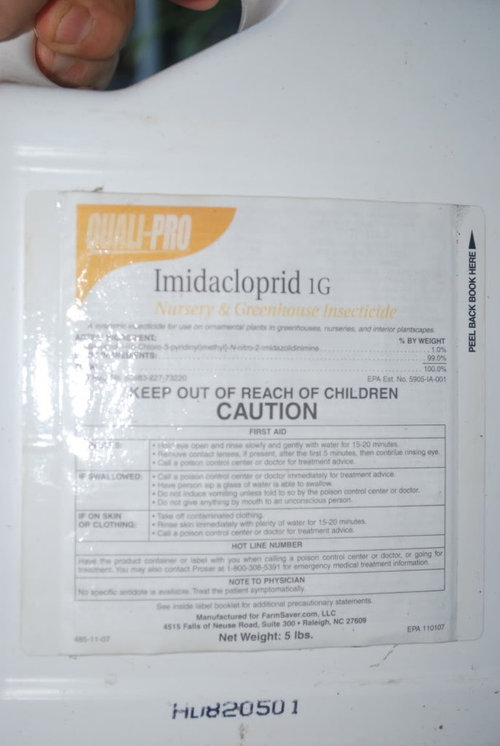If you can obtain this systemic insecticide I would highly recommend this. This replaces Marathon for effectiveness and a much better price. Just a teaspoon per gallon of potting mix is all you need and you'll never have any sucking insect pests again (mealies, scales, aphids, white flies, root mealies too!).
I apply this at about every three months to effectively keep everything under control.
People make the mistake and think that this is a fertilizer, but imagine if a plant had no parasites or insects sucking their vital food juices what it can do for growth.
I would imagine that this bottle can be shared between several people for an amount that cheaper than all the pesticides and natural safe pest control and soaps that do't really do anything.
This is a granular insecticide, just sprinkle and water in for non-odor and no messy spraying, no need to ruin furniture or leave residue of soapy films.
Try it. Watch everything grow faster and better!








mairzy_dotes
Ament
Related Professionals
Reading Landscape Architects & Landscape Designers · Brentwood Landscape Architects & Landscape Designers · Lakewood Landscape Architects & Landscape Designers · Clermont Landscape Contractors · Peabody Landscape Contractors · Beverly Hills Landscape Contractors · Hicksville Landscape Contractors · Lynwood Landscape Contractors · Merced Landscape Contractors · North Ridgeville Landscape Contractors · Pine Hills Landscape Contractors · Rockland Landscape Contractors · Wailuku Landscape Contractors · Fort Worth Driveway Installation & Maintenance · Milpitas Driveway Installation & MaintenanceRainforestGuyOriginal Author
patrick51
rony_rad
suetran1
Ament
mairzy_dotes
mdahms1979
sberg
RainforestGuyOriginal Author
cpawl
odyssey3
rennfl
mdahms1979
RainforestGuyOriginal Author
mdahms1979
greenman28 NorCal 7b/8a